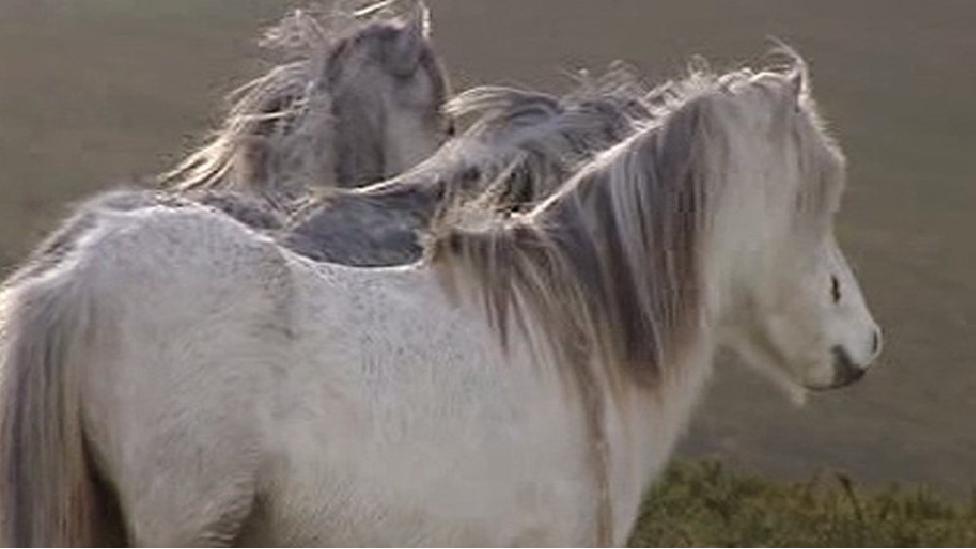Ponies aid Cotswold nature reserve conservation work
- Published

People are urged to refrain from feeding the ponies to keep their wild qualities
Ponies are playing an important role in conservation in the Cotswolds.
Groups of Welsh mountain ponies have been grazing on the Gloucestershire Wildlife Trust's (GWT) reserve at Daneway Banks.
They eat dominant plants, tread down bracken and create new spaces for rich biodiversity, including boosting numbers of the rare large blue butterfly.
Alan Sumnall, from GWT, said: "The ponies are fantastic at what they do."
Mr Sumnall, lead land manager, said while cattle and sheep can also be used, this particular reserve is in a TB hotspot and so getting them on and off the reserve, and the complications of that, can be difficult.
He also said sheep were more prone to dog attacks.
'Target species thriving'
As the ponies have teeth which point slightly forward, they can graze very close to the ground, and are selective, leaving some areas untouched - creating refuges for insects, reptiles and small mammals.
"What they are doing is restoring a natural process, which has almost been lost here in the UK," Mr Sumnall said.
"They come onto the reserve, they graze and take down all last year's growth and as they are doing that, their hooves are moving seed around and creating pockets of bare ground and they are also transporting seeds around on their coats.
"They allow the wild flowers to germinate and our target species, such as the large blue butterflies, are absolutely thieving as a result of the ponies and the grazing that they do."
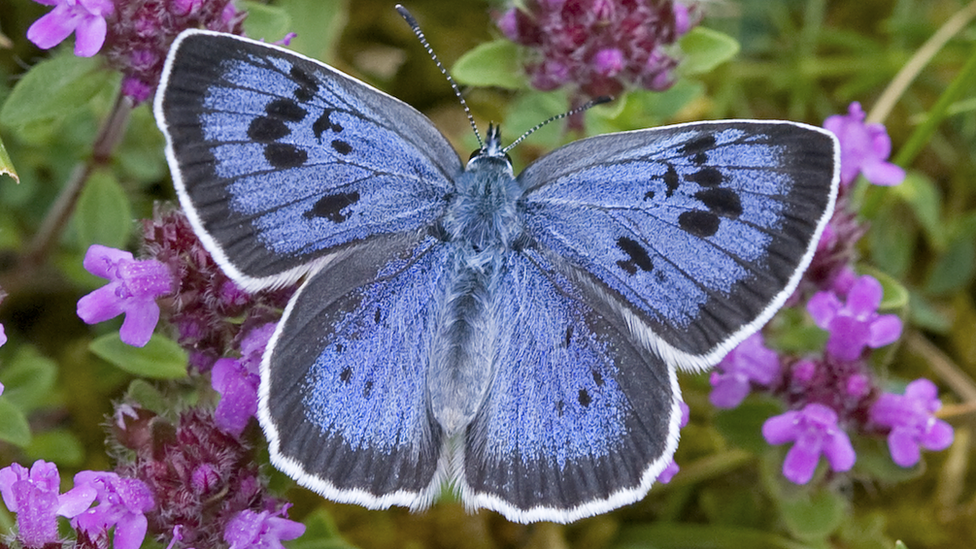
Once extinct in the UK, the large blue butterfly has been recorded at about 40 sites in England - including in the Cotswolds
The large blue butterfly was once extinct in the UK, but the GWT said it has its largest known population in the world at Daneway Banks.
The ponies graze dominant plants such as brambles, gorse and thick grasses to restore important heathland.
"Because they are a hardy breed, they can stay out in all weathers, throughout the winter and will target the really rough ground that some of our more modern breeds will struggle on," Mr Sumnall said.

The Welsh ponies can graze very close to the ground
GWT volunteer stock checker Zara Lamb is one of those responsible for checking the ponies are fit and healthy.
But she said while they are lovely to look at, people should refrain from feeding them to keep their wild qualities.
"They are wild in essence because they are living as a herd, but you do need to be able to move them and put a head collar on them at times, but they are generally weary of people and that is a good way for them to be," she said.

Follow BBC West on Facebook, external, Twitter, external and Instagram, external. Send your story ideas to: bristol@bbc.co.uk , external
Related topics
- Published25 August 2022
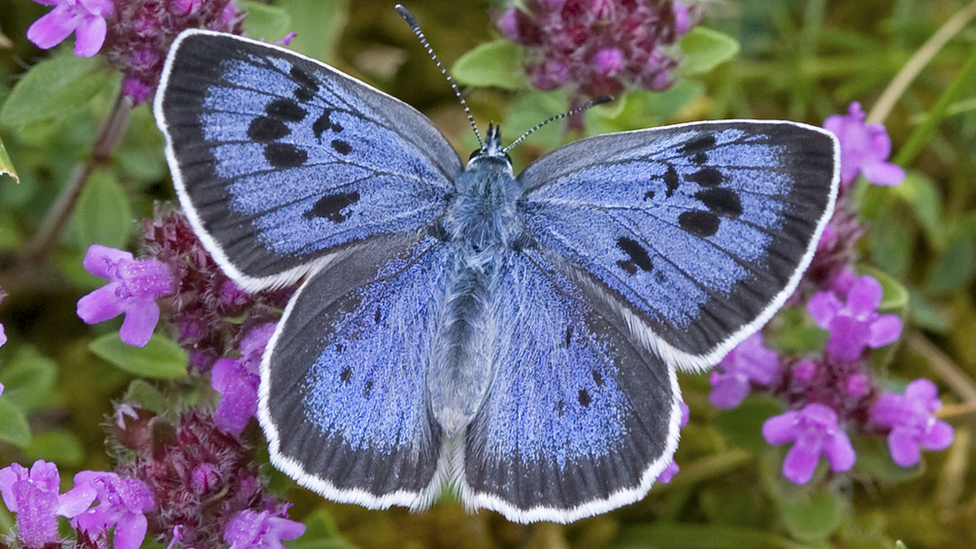
- Published13 August 2020
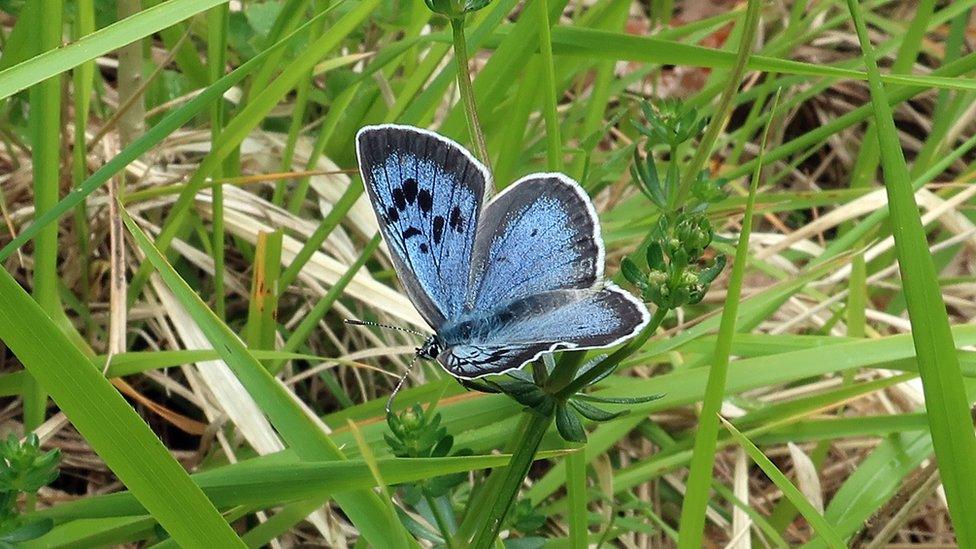
- Published21 January 2016
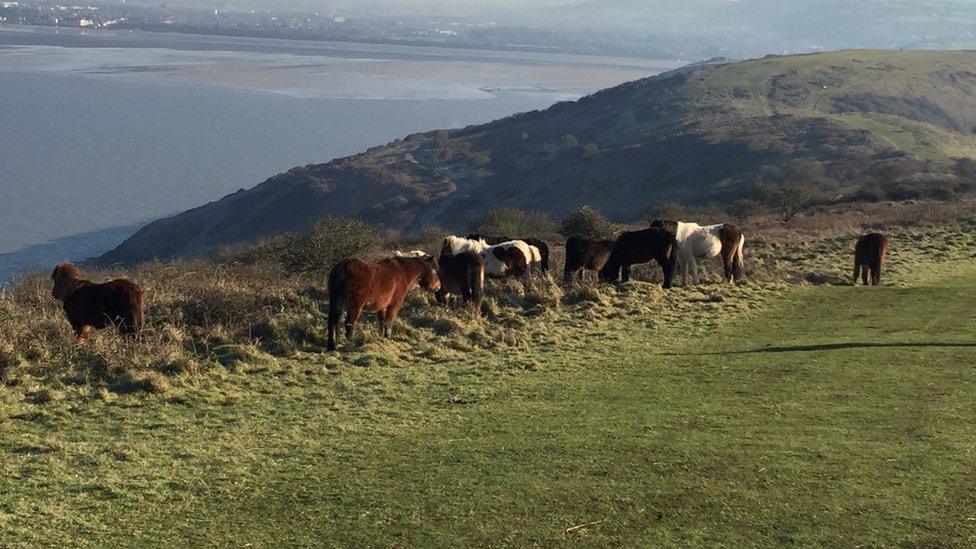
- Published7 May 2021
